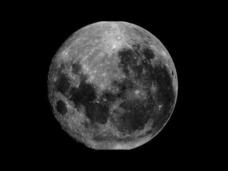NASA
NASA | Moon Phase & Libration 2013: Moon Only
This visualization shows the moon's phase and libration throughout the year 2013, at hourly intervals. Each frame represents one hour.
SciShow
How Origami Could Change Rocket Designs
Origami is helping to ease our journeys back from space, and astronomers are learning more about coronal mass ejections from a distant star!
Curated Video
Phases of the Moon
“Phases of the Moon” will explain the moon’s different phases and why they appear as they do from Earth.
Curated Video
Why Can You See The Moon During The Day?
If you are still living under the assumption that the moon can only be seen in the night sky, you’re incorrect! The fact is that the moon is always hanging around our planet; sometimes, it’s visible during the day (given you have the...
Jam Campus
THE PHASES OF THE MOON SONG 🌕 🌖 🌗 🌘 🌑
✌SUBSCRIBE FOR MORE VIDEOS: http://bit.ly/2F48qzK 📩 [FREE DOWNLOAD] 7 SECRETS OF MAKING YOUR OWN SONGS: http://eepurl.com/geN6WT 🎤 SING THE KARAOKE VERSION → Practice your skills: https://www.jamcampus.com/moon-phases-song/ 🔥NEED A VIDEO...
Curated Video
Our Solar System
Dr. Forrester classifies the parts of our solar system by examining such components as planets, moon, Sun, Milky Way, comets, asteroids, and meteors. She explains lunar phases, lunar eclipses, and solar eclipses. Dr. Forrester...
NASA
International Observe the Moon Night Trailer
International Observe the Moon Night is a worldwide celebration of lunar science and exploration, celestial observation, and our cultural and personal connections to the Moon. One day each year, everyone on Earth is invited to observe,...
NASA
International Observe the Moon Night 2020 Trailer
International Observe the Moon Night is a time to come together with fellow Moon enthusiasts and curious people worldwide. Everyone on Earth is invited to learn about lunar science and exploration, take part in celestial observations,...
Learning Mole
The Moon
This animated video is all about earth's only natural satellite - The Moon. Students will love this engaging and interactive video.
National Geographic
Moon 101 | National Geographic
What is the moon made of, and how did it form? Learn about the moon's violent origins, how its phases shaped the earliest calendars, and how humans first explored Earth's only natural satellite half a century ago. ➡ Subscribe:...
Clarendon Learning
Phases of the Moon | Learn all about the moon for kids!
Phases of the Moon is a great introduction to the moon for kids. In this video we will learn all about the moon, the effects that it has on the earth, and how it orbits. We also talk about the first people who landed on the moon (Neil...
SciShow
Phobos Is Hiding Secrets About Mars's Atmosphere | SciShow News
This week, researchers are getting ready to learn about earth and Mars, in places that you might not expect.
NASA
A New Model for Understanding Jupiter's Climate
Climate patterns and storms on Jupiter can have striking similarities to those on Earth. One such pattern is a four-year temperature cycle in the Jovian upper atmosphere called the QQO. This cycle has a little sibling in Earth's...
Physics Girl
What's the difference between a solar and lunar eclipse?
Solar and lunar eclipse - which is which? And how can you finally remember the difference?
NASA
WFIRST's Wide Field Instrument
In order to know how the universe will end, we must know what has happened to it so far. This is just one mystery NASA's forthcoming Wide Field Infrared Survey Telescope (WFIRST) mission will tackle as it explores the distant cosmos. The...
Crash Course
Moon Phases
The moon is up at night the same amount of time it is up during the day. The video discusses why the moon has phases, how even ancient people knew it was a sphere, and each moon phase. It focuses on each moon phase individually, not only...
PBS
Phases of a Total Solar Eclipse
Prepare to be amazed! An activity from PBS's Space series introduces interested astronomers to the wonders of a total solar eclipse. After viewing recorded reactions to the eclipse in 2017, individuals explore what happens during each...
Bozeman Science
ESS1B - Earth and the Solar System
The motion of the earth around the sun creates many different patterns in our world. Watch as a video instructor explains the patterns of moon phases, sunrise and sunset times, seasons, tides, and constellations among others. He also...
Veritasium
What Causes The Phases Of The Moon?
Discover how the movement of the moon creates different views from Earth. An expert in the field explains that when the moon orbits, different parts become illuminated. The installment of the Veritasium playlist films right after a...
Socratica
What Is Earthshine?
Light travels in interesting ways through the solar system. A video episode from a longer series highlights how the sun's rays travel to the earth and moon and sometimes in between. Scholars learn about reflection properties on a very...
Science Today
Earth at Night
The Sumoi NPP satellite collects light from Earth's surface during nighttime hours. From the images produced, scientists can study populations, pollution, sea ice, moon phases, and more! This brief video clip would be a high-quality...
Physics Girl
What's the Difference between a Solar and Lunar Eclipse?
Is your class in the dark about what happens during solar and lunar eclipses? Help them see the light using a fun physics video! The narrator explains and illustrates both types of eclipse, then offers three handy methods for remembering...
Veritasium
States of Matter
What makes water icy? Explore a range of theories from patrons at a public skating rink in an interview-style video. The narrator leads participatns through the phase change all the way to the molecular level, where less movement...











